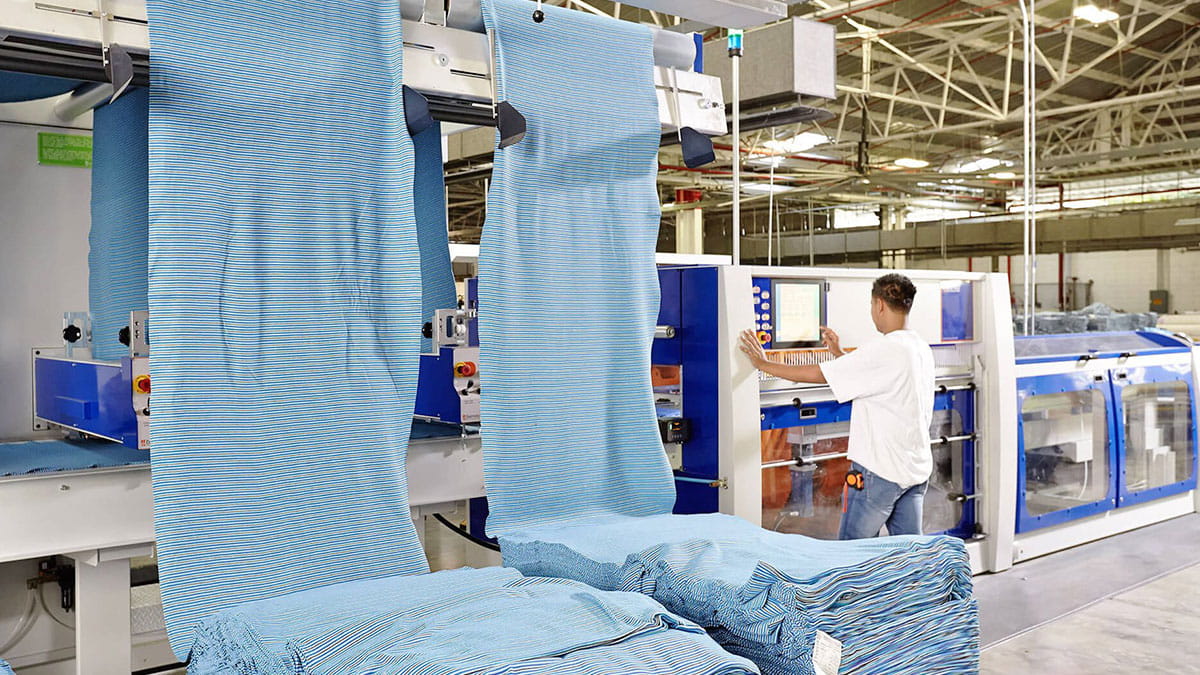ITMF has revealed the devastating effect of the coronavirus outbreak on the textile value chain through two market studies. Accordingly, while orders are cancelled or postponed by more than 30%, 2020 turnover is expected to be 28% less than in the previous year. Coronavirus outbreak (Covid-19) continues to affect the world, people and economies deeply as a pandemic. A process that has never been experienced in modern economic life shows itself in all economies. Textile and ready-to-wear industries take their share from this situation. Studies on this issue already show serious shrinkage.
The International Textile Manufacturers Federation (ITMF) revealed the negative impact of the outbreak on orders and turnovers by two consecutive studies conducted with its members and companies. Following the first research, which took place on March13-25, the second research took place between 28 March and 6 April, and was carried out with the participation of 700 companies. According to the results of the research, orders in the global textile value chain were cancelled or postponed by an average of 31%. In connection with this, turnover is expected to decrease by 28% in 2020 compared to the previous year.
Order drop
The results of ITMF’s study of the effects of the Corona pandemic on the global textile industry, show that companies in all regions of the world suffered significant numbers of cancellations and/or postponements of orders. Globally, current orders dropped by -31% on average. The severity of the decrease ranges from -20.0% in East Asia to -41% in South America. On world average, the turnover in 2020 is expected to be -28% lower than in 2019. While in South Asia the expected turnover will fall by -15%, companies in Africa are expecting a drop of -45%.
While some regions were not fully affected by this process in the first weeks of the outbreak, the negative picture in orders and turnovers in the following period covered all markets. The uncertainty about the duration of the crisis weighs heavily on the industry. The main challenges for companies are highlighted such as; employee safety and health protection, decrease in supply and demand, and lack of liquidity. On the other hand, it has been stated that textile products that have health and protection effects draw attention and become advantageous products due to the coronavirus outbreak. In this process, it was argued that companies could become stronger for the next period by focusing on their internal organizations.
ITMF urges governments to support industry
In the statement made after the survey, ITMF urged governments to increase their support in the context of the coronavirus outbreak, which has spread all over the world, to overcome an unprecedented period of demand and supply shock.
Kihak Sung, ITMF President, said that there has not been such a demand shock until now; “Textile and apparel companies in the world are fighting with millions of workers and employees. At this time, both the public and private sectors have to work together to avoid economic and social meltdown”.
It was stated that there are developed tools such as short work in some industrialized countries, and firms have reduced working hours and wages instead of firing. On the other hand, Sung stated that these mechanisms are not available in developing countries; “That’s why it’s important to find creative solutions that can be implemented quickly across the government, international institutions, and the private sector”.

The survival of companies
Noting that job security and finding sufficient liquidity are two main problems for companies; Sung emphasized that both issues are essential for the survival of companies. Sung said it is important for governments to take steps; with the support of international financial institutions such as; the International Monetary Fund (IMF) and the World Bank to provide financial assistance to fibre, textile and apparel companies. Sung said; “In order to provide companies with enough liquidity to overcome this critical process; ITMF asks governments to provide additional credit opportunities to banks; supported by guarantees of governments and/or international institutions; and to suspend other forms of social assistance and contributions”.
On the other hand, Sung expressed that all stakeholders in the supply chain should work together. First of all, ITMF wants retailers and brands to avoid using any ‘force majeure item’ in their contracts with suppliers; causing cancellation of prepared orders. It is emphasized that in case of bankruptcies due to the deterioration in the supply chain; there will be problems in the supply of products in the next period.
